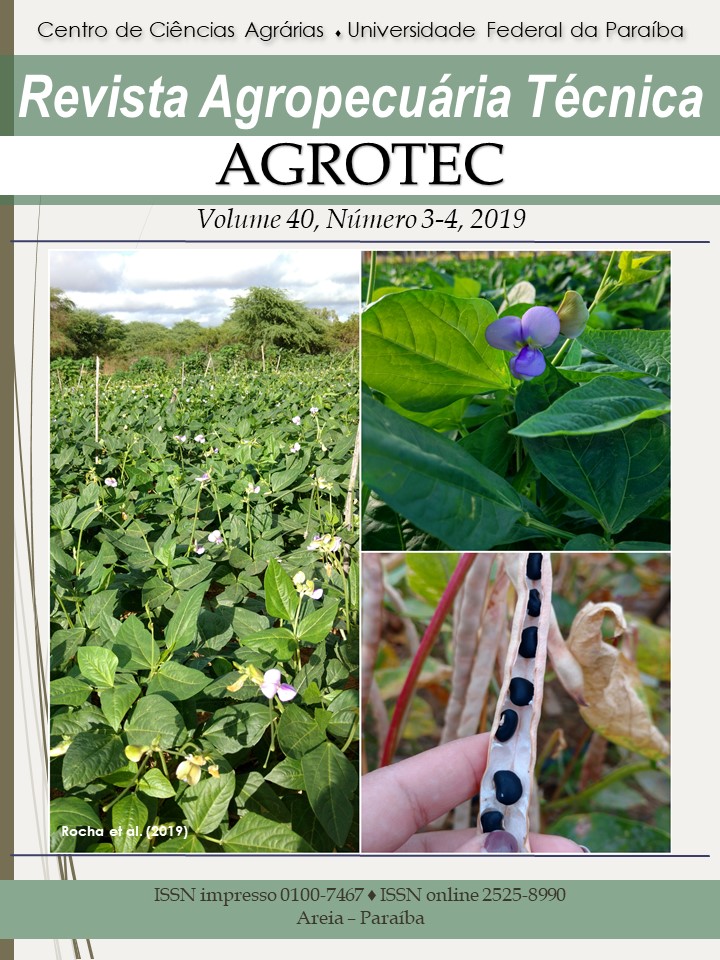Characterization of soil irrigated with groundwater in 'Palmer' mangrove orchards in the North of Minas Gerais
DOI:
https://doi.org/10.25066/agrotec.v40i3-4.44635Keywords:
Salinity, Water quality, Soil changes, Mangifera indicaAbstract
Continuous irrigation, mainly in the semi-arid region, can harm soil fertility with salt improvement, that unbalances soil chemicals and nutrient availability, and make impracticable fruit cropping. This work evaluates soil chemical and physical-chemical properties in a Eutrophic Red Latosol (Oxisol) focused on soil fertility and salinity, in a mango crop irrigated with confined aquifer water in Northern Minas Gerais, Brazil. Six farms were analyzed with soil sampling in 0-0.2; 0.2-0.4; 0.4-0.6 e 0.6-0.8 m depth and two conditions each one: a) native forest; b) center point of micro-sprinkler irrigation area. It was measured soil pH, Ca, Mg, K, Na, Al, H+Al, Fe, Mn, Cu, B, and Zn. Analysis of irrigation water from each farm provided pH, electrical conductivity, Ca2+, Mg2+, Na+, CO32-, HCO3-, Cl- and sodium-adsorption-ratio (SAR). Irrigation with carbonate aquifer source increases Ca, pH, Ca/Mg and Ca/K ratio and decrease manganese availability in mango ‘Palmer’ field soil.


